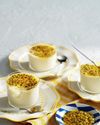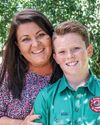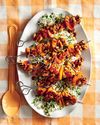
Imagine yourself on a hot summer day in the not-too-distant future. You’ve brought your three-year-old daughter to the playground because she loves the swings. A natural athlete, she is using her strong little body to propel herself ever higher, her blonde pigtails trailing behind her like streamers. She’s soaring, and your breath catches as she reaches the top of the swing’s arc and her tiny hands let go of the chains. You rush towards her as she crashes to the ground. She is dazed, but not injured. It is just as the doctor promised:
her bones are unbreakable.
You hug her and remind yourself of the insurance policy you put in place before she was born. She has a vanishingly small risk of cancer, and no risk of diabetes. She will never get Alzheimer’s. You made sure of that when you requested that her embryo be edited before implantation.
“To produce a GMO [genetically modified] sapiens baby, you would begin effectively by placing an order for her or him,” wrote biologist Paul Knoepfler in 2015. “Scientists would team up with you, as the parent, to make this new GM child, using your cells and genetic fabric as the starting material. The only other things needed from you would be the money to pay for the process and your input into the design of the baby.” He then suggested we could see edited humans as soon as 2030.
This story is from the June 2021 edition of The Australian Women's Weekly.
Start your 7-day Magzter GOLD free trial to access thousands of curated premium stories, and 9,000+ magazines and newspapers.
Already a subscriber ? Sign In
This story is from the June 2021 edition of The Australian Women's Weekly.
Start your 7-day Magzter GOLD free trial to access thousands of curated premium stories, and 9,000+ magazines and newspapers.
Already a subscriber? Sign In

Maggie's kitchen
Maggie Beer's delicious veg patties - perfect for lunch, dinner or a snack - plus a simple nostalgic pudding with fresh passionfruit.

Reclaim your brain
Attention span short? Thoughts foggy? Memory full of gaps? Brigid Moss investigates the latest ways to sharpen your thinking.

The girls from Oz
Melbourne music teacher Judith Curphey challenged the patriarchy when she started Australia's first all-girls choir. Forty years later that bold vision has 6500 members, life-changing programs and a new branch of the sisterhood in Singapore.

One kid can change the world
In 2018, 10-year-old Jack Berne started A Fiver for a Farmer to raise funds for drought relief. He and mum Prue share what happened next.

AFTER THE WAVE
Twenty years ago, the Boxing Day tsunami tore across the Indian Ocean, shredding towns, villages and holiday resorts, and killing hundreds of thousands of people from Indonesia to Africa. Three Australians share their memories of terror, loss and survival with The Weekly.

PATRICIA KARVELAS How childhood tragedy shaped me
Patricia Karvelas hustled hard to chase her dreams, but it wasn't easy. In a deeply personal interview, the ABC host talks about family loss, finding love, battles fought and motherhood.

Ripe for the picking
Buy a kilo or two of fresh Australian apricots because they're at their peak sweetness now and take inspiration from our lush recipe ideas that showcase this divine stone fruit.

Your stars for 2025
The Weekly’s astrologer, Lilith Rocha, reveals what’s in store for your astrological sign in 2025. For your monthly horoscope, turn to page 192.

MEL SCHILLING Cancer made me look at myself differently'
One year on from going public with her bowel cancer diagnosis, Mel Schilling reveals where she's at with her health journey and how it's changed her irrevocably.

Nothing like this Dame Judi
A few weeks before her 90th birthday, the acting legend jumped on a phone call with The Weekly to talk about her extraordinary life – and what’s still to come.